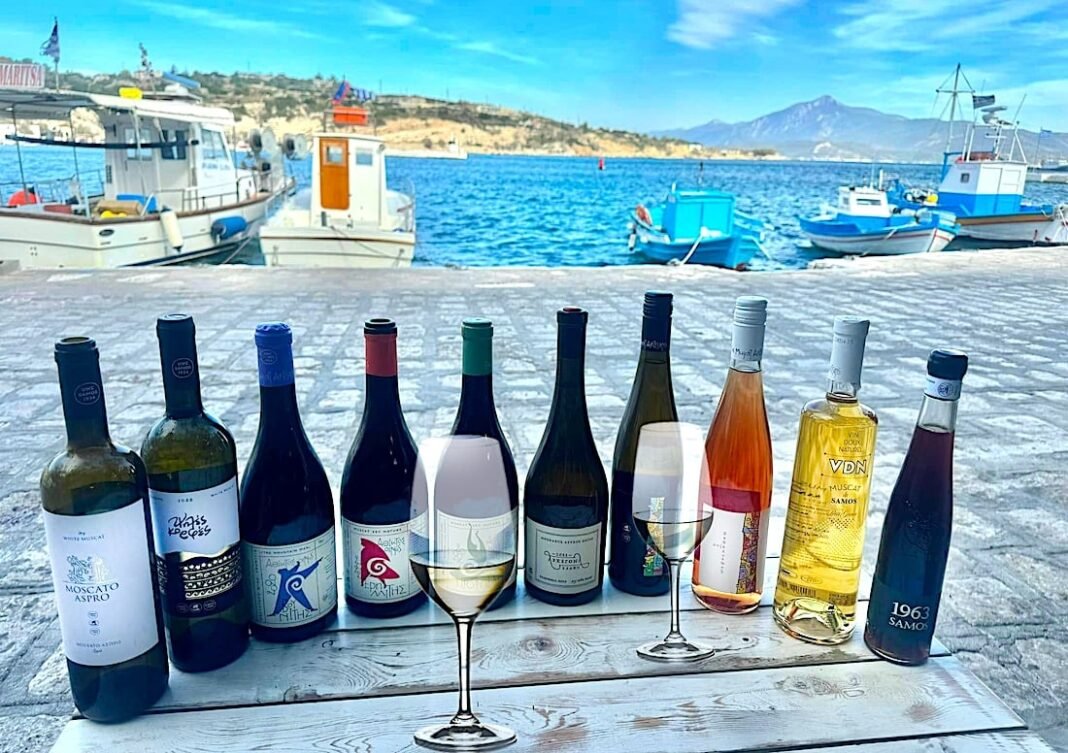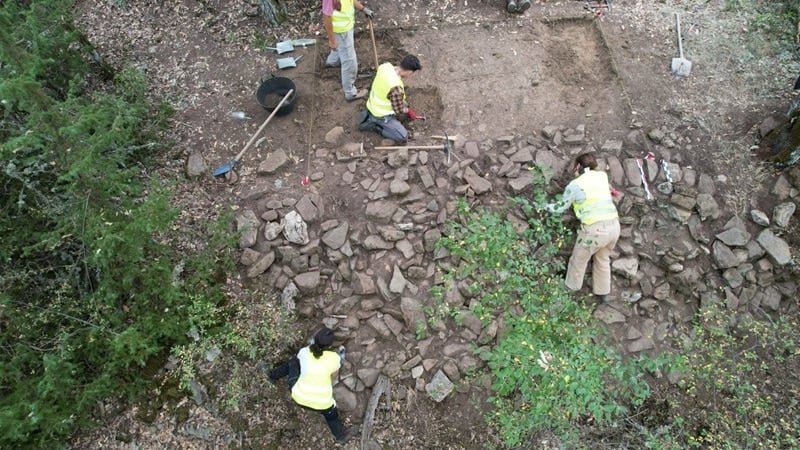
On the sun-drenched island of Samos, Greece, wine is more than a product. It is heritage, identity, and a living history. For over three thousand years, the island has cultivated the Muscat grape, crafting wines that have traveled across continents while preserving their unique aromas and flavors.
“We are standing in a historic place,” says Pigi Kouvari, Brand Ambassador of the Union of Winemaking Cooperatives of Samos to Greek Reporter. “It is a 17th-century building that once served as a tavern. Back then, taverns were not restaurants as we know them today—they were wine storage facilities and cooperages. That’s why you see these massive tanks, one holding 80,000 liters [21,133 gallons].”
Today, this building is the Wine Museum of Samos, a living testament to the island’s long tradition of winemaking. Kouvari adds, “From the 17th century until now, Samos has been producing wine continuously. The sweet Muscat has remained unchanged, just as authentic as it was centuries ago.”

A sweet tradition spanning millennia
The history of Samos wine stretches back to ancient Greece, when sweet Muscat was stored in amphorae and shipped aboard wooden vessels across the Mediterranean. Its natural sugars made it durable for long journeys, allowing it to reach faraway markets while keeping its flavor intact.
“The tradition of producing Muscat on Samos has been uninterrupted for three thousand years,” Kouvari explains. “From antiquity to today, the grape, its aromas, and its flavor have remained genuine and unaltered.”
The Muscat grape dominates the island, covering 98 percent of its vineyards, while small quantities of other varieties such as Fotiáno, Avgoustiátis, and Retinó complement the landscape. Its signature aroma has hints of citrus, stone fruits, and delicate blossoms, making Samos wine instantly recognizable.

The power of the cooperative
The Union of Winemaking Cooperatives of Samos was founded in 1934, uniting local producers under a collective framework. Today, over 1,400 producers are part of the cooperative, maintaining both quality and tradition.
“Our production averages around 5.5 million liters [1,452,946 gallons] a year,” Kouvari notes in speaking to Greek Reporter. “It varies depending on weather and vineyard conditions, but the scale has always been impressive. The tanks in our museum, some holding over 40,000 liters, offer a glimpse of how wine shaped the island’s economy and culture for centuries.”
Sweet and dry: Greece’s wines conquering the world
Samos is world-famous for its sweet wines, with fortified varieties such as Vin Doux leading international exports. Yet the island’s dry wines are also gaining recognition, especially the “High Peaks,” made from grapes grown at 1,000 meters (3,280 feet) above sea level.
“Our sweet wines remain the most exported,” Kouvari says. “But today, we are seeing growing demand for our dry wines as well. Samos wine reaches the United States, Canada, Australia, South Korea, and Japan—a true ambassador of Greek viticulture.”

Wine for faith and ceremony
Beyond the table, Samos wine plays a sacred role. The cooperative produces ecclesiastical wines, blending white and black Muscat for Orthodox liturgies.
They also make Eucharistic wines (altar wines) for Catholic ceremonies and were among the first Greek producers to produce wine for Jewish rituals—with exports even reaching the Vatican.
“The cooperative ensures that our wines meet the needs of faith, tradition, and ceremony,” Kouvari explains to Greek Reporter. “It’s another way Samos wine connects people across the world.”
A living heritage in every glass: Greece’s Samos wine
Every glass of Samos wine is a journey through time. From ancient amphorae to modern cellars and from sun-drenched terraced vineyards to international tables, the Muscat grape has remained the heartbeat of the island for over three thousand years.
“It’s genuine, unchanged, and authentic,” Kouvari reflects. “Tasting Samos wine is tasting history itself—a sweet tradition carried forward from the past into the present.”


